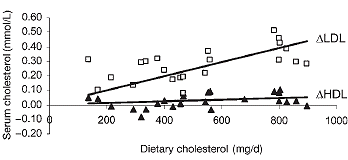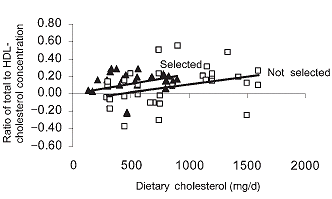Originally posted by Snuff-Sann
View Post
Waar wel duidelijkheid over bestaat is dat de consumptie van hele eieren niet de negatieve invloed heeft die velen beweren. Daar is voldoende onderzoek naar gedaan.
A 2007 study of 9,500 people reported in Medical Science Monitor showed that eating one or two eggs a day did not increase the risk of heart disease or stroke among healthy adults. The study noted that eating eggs may actually be associated with a decrease in blood pressure.
bron: Qureshi A, et al. Regular egg consumption does not increase the risk of stroke or cardiovascular diseases. Medical Science Monitor. 2007; 13(1): CR1-8.
bron: Qureshi A, et al. Regular egg consumption does not increase the risk of stroke or cardiovascular diseases. Medical Science Monitor. 2007; 13(1): CR1-8.
A six-week study conducted by researchers at the Yale Prevention Research Center in 2005 showed that adding two eggs a day to a healthful diet did not significantly increase blood cholesterol levels in young or middle-aged men and women with normal or even moderately elevated blood cholesterol levels.
bron: Katz DL, et al. Egg consumption and endothelial function: a randomized controlled crossover trial. Int J Cardiol. 2005; 99:65-70.
bron: Katz DL, et al. Egg consumption and endothelial function: a randomized controlled crossover trial. Int J Cardiol. 2005; 99:65-70.
In 2005 researchers at the University of Connecticut found that healthy elderly adults who ate three eggs a day for one month did not experience an increase to their LDL:HDL ratio or to their Total:HDL ratio, which are two major indicators for heart disease risk.
bron: Greene CM, et al. Maintenance of the LDL cholesterol: HDL cholesterol ratio in an elderly population given a dietary cholesterol challenge. J Nutr. 2005; 135:2799-2804.
bron: Greene CM, et al. Maintenance of the LDL cholesterol: HDL cholesterol ratio in an elderly population given a dietary cholesterol challenge. J Nutr. 2005; 135:2799-2804.
The Journal of Nutrition published a study in 2008 that found overweight men who eat eggs while on a carbohydrate-restricted diet have a significant increase in their HDL levels (the “good” cholesterol) compared to men who don’t eat eggs.
bron: Mutungi G, et al. Dietary cholesterol from eggs increases plasma HDL cholesterol in overweight men consuming a carbohydrate restricted diet. J Nutr. 2008;138:272-276.
bron: Mutungi G, et al. Dietary cholesterol from eggs increases plasma HDL cholesterol in overweight men consuming a carbohydrate restricted diet. J Nutr. 2008;138:272-276.
Originally posted by Snuff-Sann
View Post
Verders is het ook persoonsgebonden. Hoeveel cholesterol maak je van nature aan, ben je van nature al iemand met bijvoorbeeld een te hoge bloeddruk. Kijk, aangezien niet iedereen dat weet van zichzelf en anderen kunnen dat ook niet vaststellen is het advies om het eigeel op te eten en niet weg te gooien omdat dat zonde is natuurlijk niet echt raadzaam.
Je kunt immers niet weten hoe een ander op de hoge inname van cholestrol reageert.
Je kunt immers niet weten hoe een ander op de hoge inname van cholestrol reageert.
En vergeet niet dat het willen consumeren van de beste kwaliteit eiwitten de reden is voor het eten van eieren en niet omdat het vitaminen en mineralen bevat. We hebben natuurlijk immers onze multi-vits en mins als supplement.




Comment